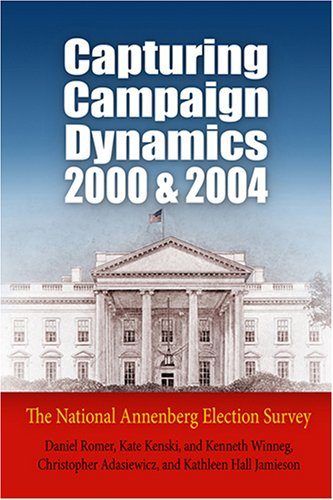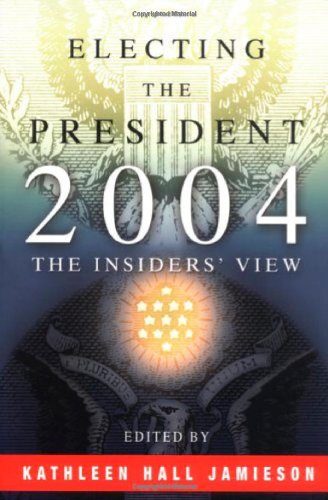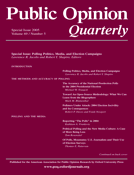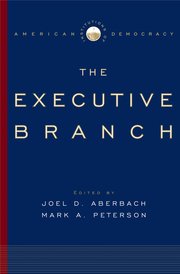More than $400 million was spent on issue advertising targeted primarily to members of Congress or other federal policy-makers during the 108th Congress, according to a new study published in the fall issue of The Harvard International Journal of Press/Politics. “Legislative Issue Advertising in the 108th Congress: Pluralism or Peril?” analyzed the nearly 68,000 ads
Institutions of Democracy
FactCheck.org feted twice on Friday
FactCheck.org’s success as a watchdog of campaign advertising honesty and accuracy was recognized on two continents Friday. At an awards ceremony in Paris, FactCheck, which operates from the Annenberg Public Policy Center’s Washington office, was selected one of the “Top 10 Who Are Changing the World of Internet and Politics” in an international competition. The
Americans Trust Courts but also Believe them Biased, Surveys Find
Many Americans Lack Basic Understanding of the Judiciary Americans consistently rank the Supreme Court as the most trusted branch of government and hold a similar level of trust in state courts. But many also believe that the nation’s courts favor the wealthy and politically connected, that judges are motivated by political and personal biases, and
Only 53%-58% of Americans Say President Must Follow a Supreme Court Ruling
Contrary to what they have been taught in civics books, over one-third of American adults thinks it is okay for the president to ignore a Supreme Court ruling if the president believes the ruling will prevent him from protecting the country against terrorist attacks, according to a recent APPC survey.
FactCheck.org Named by Time.com as “One of 25 Sites We Can’t Live Without”
FactCheck.org, the nonpartisan website devoted to reducing the level of confusion and deception in U.S. politics, yesterday was named by Time.com as one of “25 Sites We Can’t Live Without.” FactCheck, a project of the Annenberg Public Policy Center at the University of Pennsylvania, joins web heavies such as Google, Amazon, Ebay, ESPN, Wikipedia and




